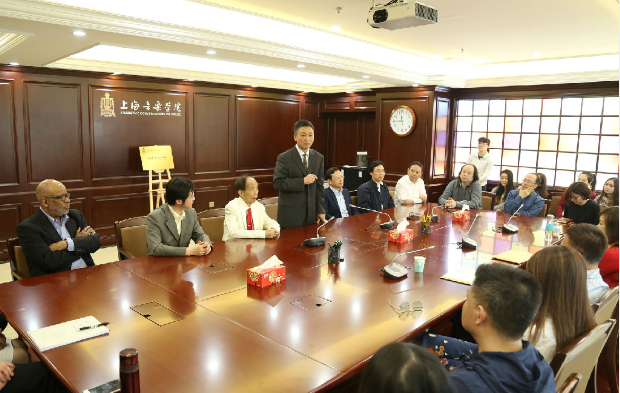SHCM sets up a new college to promote ethnic music orchestra

Shanghai Conservatory of Music unveiled its Ethnic Music Orchestra College on May 25, 2017. It is the first ethnic music college of its kind in China, which focuses on the ethnic music talents’ cultivation, ethnic music composition, performing, and theoretical research.
Lin Zaiyong, president of SHCM, said the question of how ethnic music disciplines can survive and thrive today is worth pondering. It’s SHCM’s responsibility to establish new teaching methods, management mechanisms to promote Chinese ethnic music in the world.
When SHCM was established in 1927, China’s ethnic music was incorporated into its educational system. Under the guidance of then President He Luting, the ethnic music discipline was officially established in 1956, and its courses included ethnic music theory, composition, performance, ethnic vocal music, and conducting of ethnic music.
Chinese traditional instruments are different from Western instruments in many aspects. The Chinese instruments, such as bamboo flute, er’hu, and suona, will stand out in a hundred-people orchestra for their distinct tonalities.
Taking into consideration the characteristics of the Chinese traditional instruments, the Ethnic Music College has devised a unique educational system to deepen the understanding of the orchestra compilation of the Chinese traditional instruments.
SHCM will offer undergraduate, post-graduate, and vocational courses in ethnic orchestra music.
Lu Chunlin, leading flutist in China, Yang Yandi, vice-president of SHCM, and SHCM management leaders Wang Rui, Liao Changyong, Zhang Jiachun, also attended the unveiling ceremony.




